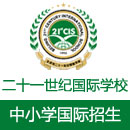BETS三級考試試題
來源:網(wǎng)絡(luò) 發(fā)布時間:2010-08-28
Section Ⅱ Use of English (15 minutes)
Directions:
Read the following text. Choose the best word or phrase for each numbered blank and mark A, B,C, or D on your ANSWER SHEET 1.
Text
What do we mean by a perfect English pronunciation? In one 26 there are as many different kinds of English as there are speakers of it. 27 two speakers speak in exactly the same 28 . We can always hear differences 29 them, and the pronunciation of
English 30 a great deal in different geographical 31 . How do we decide what sort of English to use as a 32? This is not a question that can be 33 in the same way for all foreign learners of English. 34 you live in a part of the world 35 India for West Africa, where there is a long 36 of speaking English for general communication purpose, you should 37 to acquire a good variety of the pronunciation of this area. It would be 38 in these circumstances to use as a model BBC English or 39 of the sort. On the other hand, if you live in a country 40 there is no traditional use of English, you must take 41 your model some form of 42 English pronunciation. It does not 43 very much which form you choose. The most 44 way is to take as your model the sort of English you can 45 most often.
| 26 | A. | meaning | B. | Sense | C. | case | D. | situation |
| 27 | A. | Not | B. | No | C. | None | D. | Nor |
| 28 | A. | type | B. | Form | C. | sort | D. | way |
| 29 | A. | between | B. | Among | C. | of | D. | from |
| 30 | A. | changes | B. | varies | C. | shifts | D. | alters |
| 31 | A. | areas | B. | parts | C. | countries | D. | spaces |
| 32 | A. | direction | B. | guide | C. | symbol | D. | model |
| 33 | A. | given | B. | responded | C. | satisfied | D. | answered |
| 34 | A. | Because | B. | When | C. | If | D. | Whether |
| 35 | A. | as | B. | in | C. | like | D. | near |
| 36 | A. | custom | B. | use | C. | tradition | D. | habit |
| 37 | A. | aim | B. | propose | C. | select | D. | tend |
| 38 | A. | fashion | B. | mistake | C. | nonsense | D. | possibility |
| 39 | A. | everything | B. | nothing | C. | anything | D. | things |
| 40 | A. | where | B. | that | C. | which | D. | wherever |
| 41 | A. | to | B. | with | C. | on | D. | as |
| 42 | A. | practical | B. | domestic | C. | native | D. | new |
| 43 | A. | care | B. | affect | C. | trouble | D. | matter |
| 44 | A. | effective | B. | sensitive | C. | ordinary | D. | careful |
| 45 | A. | listen | B. | hear | C. | notice | D. | find |
Section Ⅲ Reading Comprehension (40 minutes)
Part A
Directions:
Read the following three texts. Answer the questions on each text by choosing A, B, C or D. Mark your answers on the ANSWER SHEET by drawing a thick line across the corresponding letter in the brackets.
Text 1
After a busy day of work and play, the body needs to rest. Sleep is necessary for good health. During this time, the body recovers from the activities of the previous day. The rest that you get while sleeping enables your body to prepare itself for the next day.
There are four levels of sleep, each being a little deeper than the one before. As you sleep, your muscles relax little by little. Your heart beats more slowly, and your brain slows down. After you reach the fourth level, your body shifts back and forth from one level of sleep to the other.
Although your mind slows down, from time to time you will dream. Scientists who study sleep state that when dreaming occurs, your eyeballs begin to move more quickly (Although your eyelids are closed). This stage of sleep is called REM, which stands for rapid eye movement.
If you have trouble falling asleep, some people recommend breathing very deeply. Other people believe that drinking warm milk will help make you drowsy. There is also an old suggestion the counting sheep will put you to sleep!
46 A good title for this passage is ____.
A. Sleep C. Dreams
B. Good Health D. Work and Rest
47. The word drowsy in the last paragraph means ____.
A. sick C. asleep
B. stand up D. a little sleepy
48. This passage suggests that not getting enough sleep might make you _____.
A. dream more often C. nervous
B. have poor health D. breathe quickly
49. During REM, ____.
A. your eyes move quickly C. you are restless
B. you dream D. both A and B
50. The average number of hours of sleep that an adult needs is ______ .
A. approximately six hours C. about eight hours
B. around ten hours D. not stated here
Text 2
Obviously television has both advantages and disadvantages.
In the first place, television is not only a convenient source of entertainment, but also a comparatively cheap one. With a TV set in the family people don't have to pay for expensive seats at the theatre, the cinema, or the opera .All they have to so is to push a button or turn a knob, and they can see plays, films, operas and shows of every kind. Some people, however, think that this is where the danger lies. The television viewers need do nothing. He does not even have to use his legs if the has a remote control. He makes no choice and exercises, no judgment. He is completely passive and has everything presented to him without any effort in his part.
Television, it is often said, keeps one informed about current events and the latest developments in science and politics. The most distant countries and the strangest customs are brought right into one's sitting room. It could be argued that the radio performs this service as well; but on television everything is much more living, much more real. Yet here again there is a danger. The television screen itself has a terrible, almost physical charm for us. We get so used to looking at the movements on it ,so dependent on its pictures, that it begins to control our lives. People are often heard to say that their television sets have broken down and that they have suddenly found that they have far more time to do things and the they have actually begin to talk to each other again. It makes one think, doesn't it?
There are many other arguments for and against television. We must realize that television itself is neither good nor bad. It is the uses that it is put to that determine its value to society.
51. What is the major function of paragraph 1?
A. To arouse the reader's concern
B. To introduce the theme of the whole passage
C. To summarize the whole passage
D. To sate the primary uses of TV
52. Television, as a source of entertainment, is ______.
A. not very convenient B. very expensive
C. quite dangerous D. relatively cheap
53. Why are some people against TV?
A. Because TV programs re not interesting
B. Because TV viewers are totally passive
C. Because TV prices are very high.
D. Because TV has both advantages and disadvantages
54. One of the most obvious advantages of TV is that ______.
A. it keeps us informed
B. it is very cheap
C. it enables us to have a rest
D. it controls our lives
55. According to the passage, whether TV is good or not depends on _______ .
A. its quality B. people 's attitude towards it
C. how we use it D. when we use it






